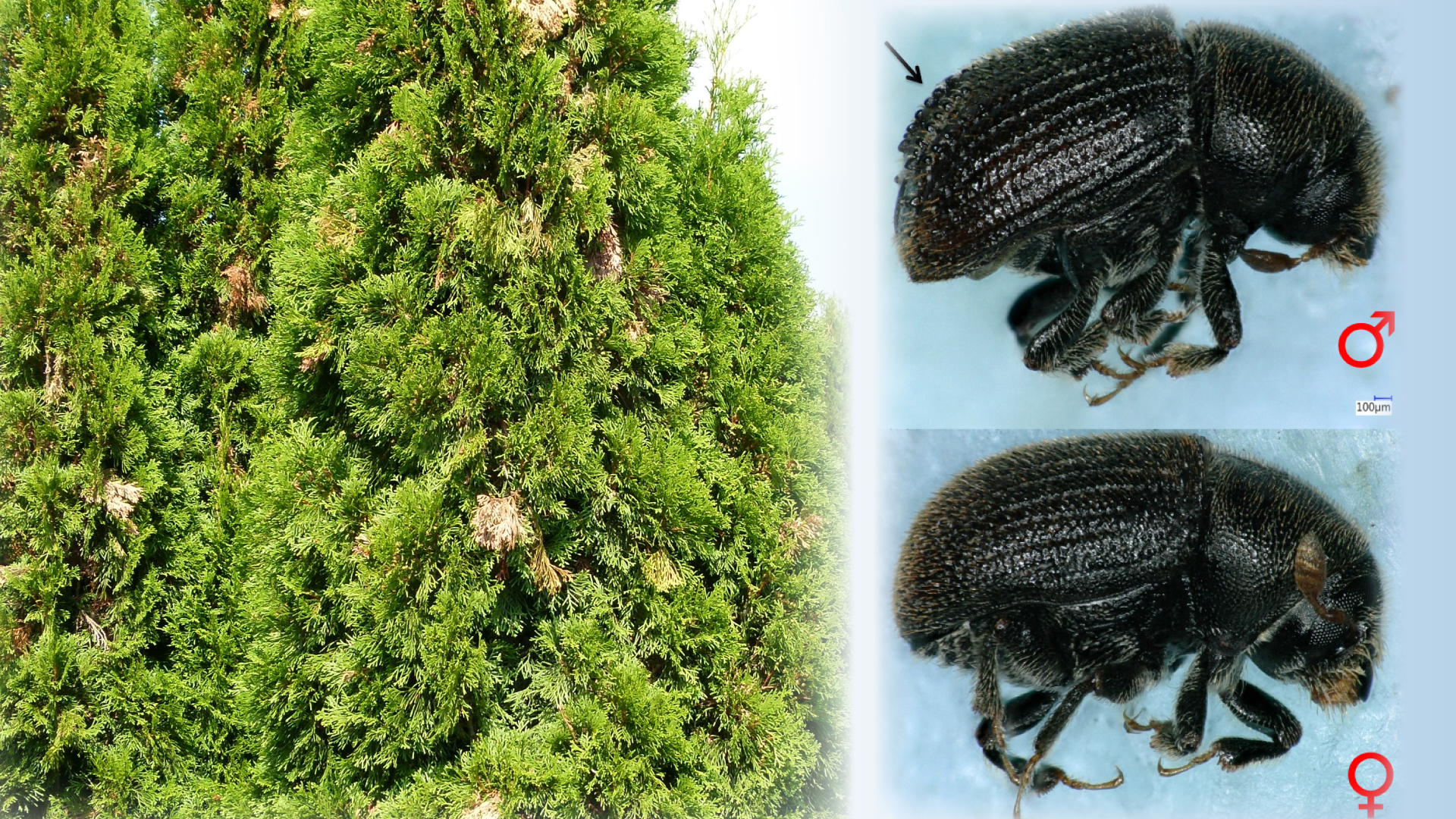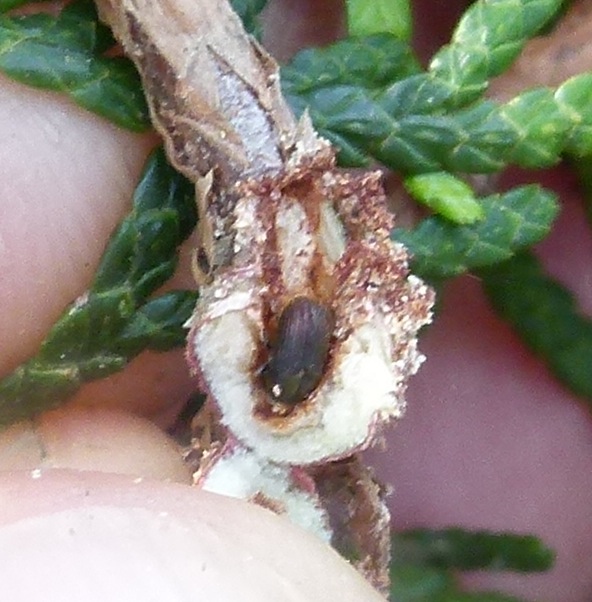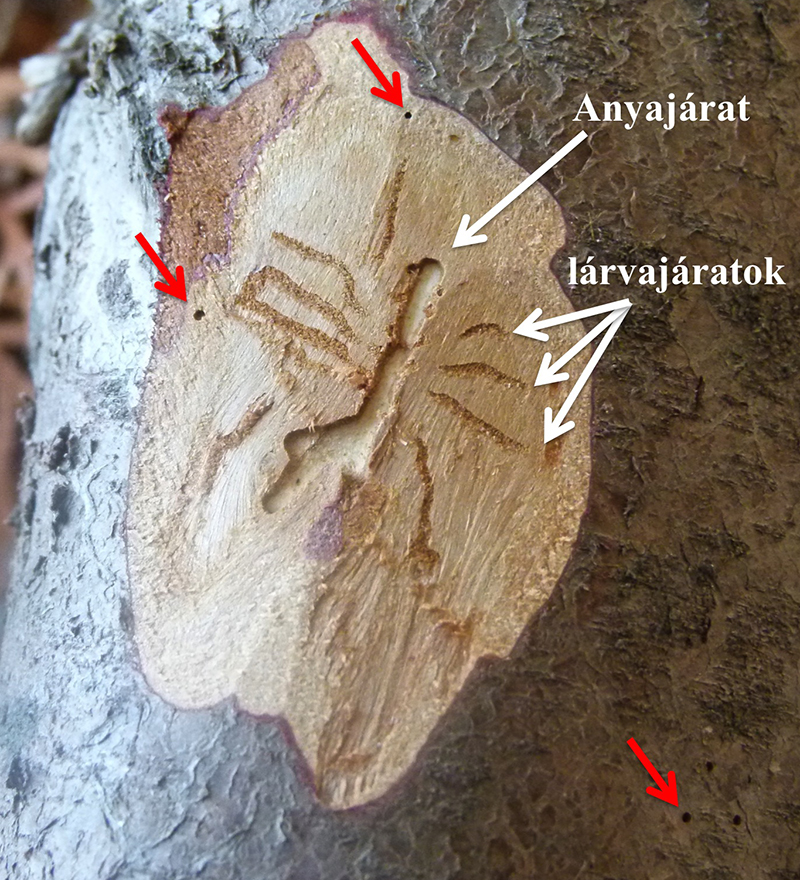HUN-REN CAR researchers identify pheromone of a devastating pest of thuja trees
The cypress bark beetle (Phloeosinus aubei) is a destructive pest of scale-leafed conifers, with its spread causing significant concern throughout Europe. Beyond the direct damage caused by its boring activity, P. aubei is also a vector of cypress canker. Its mass occurrence results in severe damage in ornamental tree nurseries, city parks and gardens. A recent study by researchers at the Plant Protection Institute of the HUN-REN Centre for Agricultural Research (HUN-REN CAR) revealed two aggregation pheromone components of P. aubei, (-)-⍺-pinene and (-)-myrtenol, which could help develop a biological control method. The results are published in the prestigious Journal of Applied Entomology.

The presence of the grape phylloxera can be identified based on the mass damage it causes.

The juniper bark beetle is in a hibernation tunnel.
The research is considered pioneering regarding scale-leafed conifer bark beetles, as the chemical ecology of this insect group was previously unknown. The work of the scientists can have a significant effect on the biological control of cypress bark beetle. Practical utilization of the findings is currently in progress, with the aim of developing a new, environmentally friendly, pesticide-free plant protection monitoring and control method against P. aubei.

Mating tunnels created by the juniper bark beetle.
For ornamental tree nurseries, these results can provide economic benefits. Previously, the presence of the species was detected only after significant damage occurred, often leading to the eradication of infested trees. However, this approach can result in serious economic losses. The protection of healthy trees has traditionally relied on frequent pesticide and fungicide applications, which are harmful to the environment and costly. These new results offer the potential for the development of an economically competitive, effective, and environmentally friendly method for cultivating thuja and cypress orchards.

